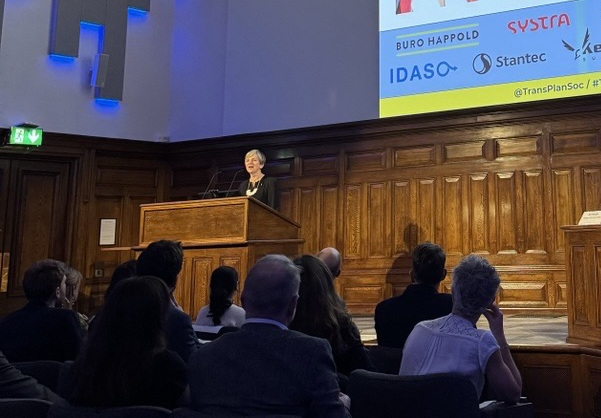The government’s proposed shift to ‘vision-led’ planning will play a key role in attempts to reduce car use, the future of roads minister has said.
Speaking at the Transport Planning Society’s (TPS) annual conference, Lilian Greenwood said that reducing car use does not ‘mean everyone suddenly has to start cycling’ but reflects an understanding that ‘in towns and cities if everyone tries to move by car, no one moves much at all’.
She told transport planners that the idea of vision-led planning as proposed in the National Planning Policy Framework means ‘planning for the future rather than responding today’.
Ms Greenwood said transport planning has often been reactive, with decisions based on current demand or past trends, often resulting in poorly integrated infrastructure and making it harder to create places where sustainable transport options are a viable option.
Instead, she said: ‘We must work together to define what we want our places to look like, and then plan the transport systems and behavioural incentives that will help us achieve this shared vision.’
Speaking at the event, TPS chair Ben Plowden said to reduce car use, governments and transport planners will need to overcome practical challenges and overcome concerns about the practicalities in areas that are currently poorly served by public transport.
‘But above all, we need to think about how to frame the issue of car use reduction so that it makes sense to people outside the transport planning profession.'
RAC Foundation director Steve Gooding also warned that transport planners ‘have a challenge to find a way to promote the positive benefits of reducing car use’.
He added: ‘They will need to explain how a reduction in car use will make things better and encourage people to be part of that future.
‘People will also want clarity about what car journeys will still be acceptable and which ones transport planners will be looking to reduce, without which they will inevitably suspect the impact on them and their families will be for the worse.’






